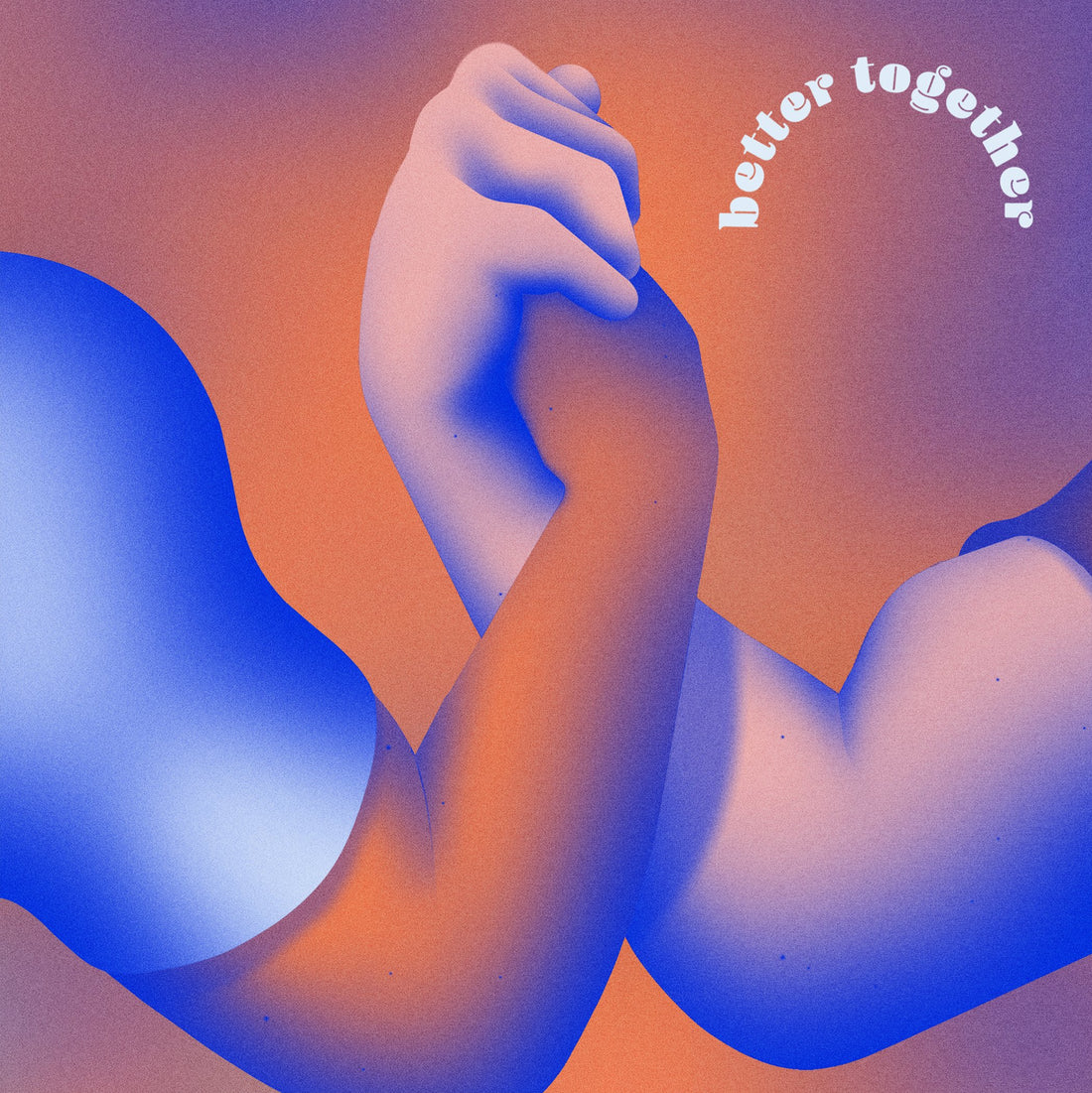There are myriad ways to grow in partnership—through new experiences, navigating trying times, and participating in individual or couple’s counseling. One activity that can benefit a relationship that you don’t have to leave the house to do is reading. Whether or not you’re actively seeking to curb destructive or recurrent patterns in your relationship, or want to show up to love more fully, reading and reflection can serve as a launching pad to fuel change by improving your understanding of self and the relationships that surround you.
Reading in relationships can also encourage conversations about stories you come across that might be helpful to your relationship. Sometimes, bringing up a relationship concern is easier when you’ve read about a tool for approaching it; this can also show care and consideration to your partner.
An earlier study revealed that the type of reading that’s wholesome for a relationship matters, though, and occurs primarily through deep and focused reading rather than scrolling with diverted attention. The act can help broaden perspectives, which is a critical component of working through conflict in relationships. In a survey of 925 participants, the overwhelming majority reported that reading positively benefited their partnerships by strengthening their relationships.
All About Love: New Visions by bell hooks
You most likely will not find All About Love on a bookstore shelf in the self-help section, surrounded by catchy yet reductive titles that purport a 200-page solution for relationship woes. But if you’re seeking to shift your understanding of “love” from noun to verb, from romantic to all human relationships, this seminal book from the prolific feminist writer bell hooks will break open formerly myopic views. It isn’t a recipe for a solution but a groundbreaking blueprint for loving. Reconstructing and revising a concept is improvement, after all.
Attached: The New Science of Adult Attachment and How It Can Help You Find–And Keep–Love by Amir Levine and Rachel Heller
Attachment theory is the latest therapy buzz phrase to pepper everyday conversation. And for good reason: its contents can be monumental for shifting patterns in adult relationships. In Attached, coauthors Levine and Heller, a team consisting of a neuroscientist and psychiatrist, utilize the science of attachment theory as a framework for why time and time again, the same conflicts arise in relationships (hint: it likely stems back to attachment with early caregivers).
John Bowlby and Mary Ainsworth developed attachment theory. The three attachment styles, anxious, avoidant, and secure, all behave in different ways in response to stress and conflict in relationships. Two attachment styles may further exacerbate one another in conflict. The book guides readers on strengthening bonds by forming an awareness of their unique attachment style.
The Ethical Slut by Dossie Easton and Janet Hardy
Before there were ample resources about nonmonogamy, an umbrella term for relationship styles that deviate from monogamy, there was The Ethical Slut, first published in 1997. Though this book was ahead of its time, it remains relevant. The Ethical Slut has been monumental in helping people in nonmonogamous relationships garner foundational elements for how they might want to execute their relationships.
Consensual nonmonogamy is a spectrum; there are multiple ways to practice it. The book is also helpful for people questioning monogamous relationships, too. In the book, Easton and Hardy, who were former lovers, reclaim the word slut as a good and wholesome thing to be but guide you through engaging in an abundance of relationships, whether sexual or not, with a helpful framework. The book is now in its third edition.
Tongue Tied by Stella Harris
To have the sex you want, sex and intimacy educator Stella Harris offers a nonjudgemental and clear approach to communicating about sex and relationships. Although there’s a focus on kink, this book provides advice applicable to all relationships–from vanilla to kinky. Boundaries, communicating about sex, navigating a BDSM scene, or working through jealousy are all themes that arise in Tongue Tied. Many people want to talk about sex but don’t know how to, thank goodness for Harris. The book also contains practical exercises and examples so you can bring the teachings from the page to the real world.
Come As You Are by Emily Nagoski, Ph.D
Emily Nagoski’s Come As You Are is a bestseller for a reason. The book uses science to demystify a fundamental element of sexual relationships—desire. Nagoski uncovers that people experience desire differently. AKA, people have different needs for feeling sexy. People don’t always have spontaneous desire for sex, as seen in almost all romance films, where desire comes out of the blue and quickly escalates to passion. Responsive desire, compared to spontaneous desire, comes from a response to pleasure.
This book is particularly helpful for those in long-term relationships who might have experienced a slowing down in their sex life. It’s also beneficial for anyone under the misconception who feels their desire should be black and white. Nagoski reassures readers that however you feel desire, there is nothing wrong with you, and there are ways to encourage desire when you learn how you experience it.
The Relationship Cure: A 5-Step Guide to Strengthening Your Marriage, Family, and Friendships by John Gottman
Not every relationship advice book translates to all relationships—whether romantic, platonic, or even connections with work colleagues, but this one is highly applicable. John Gottman, Ph.D., has researched love and relationships for decades. His methods are actionable, and through long-term studies, he’s uncovered that the secret to having a close relationship and intimacy is about more than opening up to someone.
In one study, he and his wife researched couple interactions. They found that one hidden message around emotional intimacy is not what couples were talking about but how they talk about it. Gottman names this exchange as an emotional bid, an attempt to establish an emotional connection, either verbally or nonverbally. Gottman offers strategies for dealing with different conflicts and simple yet effective ways to repair a plethora of relationships.




















































